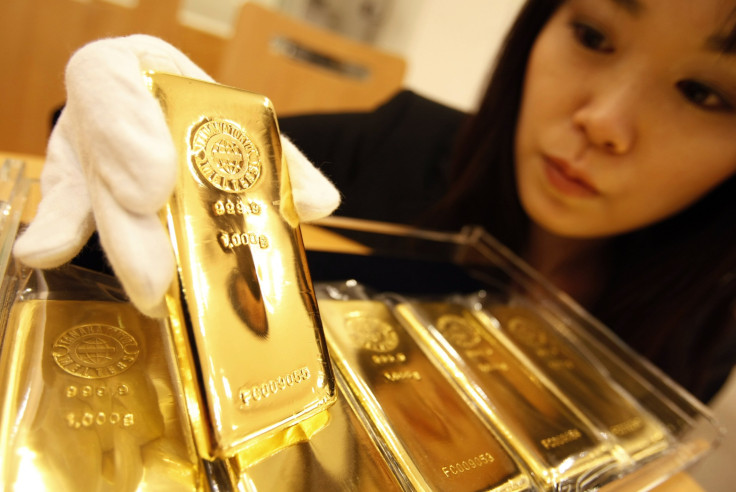Japan Sales Tax Hike Boosts Popularity Of Gold As Investors Rush To Beat Implementation Of Tax

Japanese shoppers have snapped up gold bars ahead of a controversial hike in the country’s sales tax, which takes effect Tuesday, a key part of Prime Minister Shinzo Abe’s economic “Abenomics” reforms.
Tokyo’s Tanaka Kikinzoku Jewelry K.K., Japan’s largest bullion retailer, said sales at the company’s seven stores jumped more than 400 percent in the first 27 days of March, relative to a year earlier, in an email over the weekend.
Gold sales increased five-fold in March, and sales for the first quarter of the year also improved compared with a year earlier. A sales tax hike has been widely discussed and expected over the past few months, with rates to rise from 5 percent to 8 percent. There’s also potential for the consumption tax to reach 10 percent by 2015, though Tuesday’s increase is the first in 17 years, reports Reuters.
“We’ve seen an uptick in buying out of Japan in order to beat the sales tax,” said EverBank Financial Corp. (NYSE:EVER) senior market strategist Chris Gaffney to International Business Times on Monday. “That’s been very short-term.”
March 2014 has been the busiest month in Tanka’s history, since it was founded in 1892, reported the Financial Times. A 500 gram (16 troy ounces) bar of gold cost about 2.3 million yen ($22,500) last week. Gold in New York traded for $1,294 per ounce on Monday.
Aside from dodging the tax hike, Japanese investors may be looking to protect themselves against inflation. Abe’s economic strategy involves heavy money printing by the Bank of Japan, to ward off Japan’s persistent deflation problems. Gold is typically seen as a shield against artificially devalued currencies.
Japanese retail sales broadly likely surged in March, ahead of the tax hike, said London’s Capital Economics in a note on Monday. But quantifiable data on that will only be released next month, they said.
Hiking the sales tax is seen as a risky political and economic move for Abe. The last time the tax rose from 3 to 5 percent in 1997, a recession followed. Lesser consumption after the hike could slow the Japanese economy again, though many analysts are less worried about a potential recession. Extra tax revenues will help Japan tackle its significant public debt, one of the highest among developed nations.
Japan’s gold market is small relative to the world’s two largest gold consumer markets, China and India. Japan consumed 21.3 metric tons of gold in 2013, compared to China’s 1,066 tons and India’s 975 tons, according to the World Gold Council.
But Japanese gold consumption more than tripled in 2013, from a tiny 6.6 tons, according to council data. Japanese pension funds have bought up the metal, while notable investor Dennis Gartman has recommended buying gold in yen terms, as the yen depreciates.
Tanaka Kikinzoku said gold bar sales reached a five-year high of 37.3 tons in 2013 last year.
© Copyright IBTimes 2024. All rights reserved.












